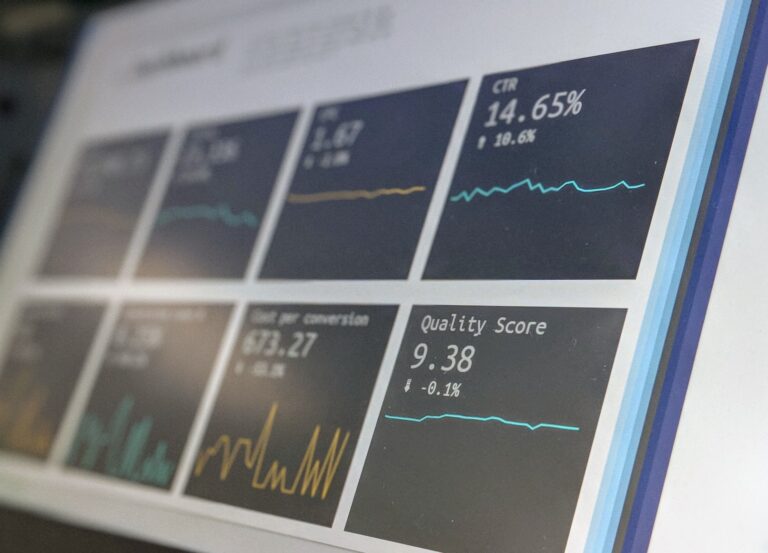Google is making some changes to Smart Bidding organisation strategies.
Whether you already use Smart Bidding technology to help manage your campaign or are just wondering how it works—we are going to break down what you need to know about Smart Bidding and how it is changing.
Smart bidding is a tool that helps make it easier and more efficient for marketers to run ad campaigns.
If you’ve run a pay-per-click campaign, chances are that you may have come across Smart Bidding already. It uses automated learning to analyse real-time signals regarding context and search behaviour. Then it automatically optimises ads for higher conversion rates.
Currently, there are four types of bidding goals you can choose to focus on:
- Maximise Conversions
Bids are optimised toward obtaining the most conversions possible for your budget. - Maximise Conversion Value
Will optimise your maximum cost-per-click so that you have a maximum value of conversions for your budget. - Target CPA
Helps optimise bids so that you achieve your target cost per action (i.e. how much you pay per conversion) for your budget. - Target ROAS
Optimisations focus on achieving a target return on ad spend for your budget.
While this may all sound ideal, keep in mind that even if you do choose to use Smart Bidding, you still need to be able to create and manage an effective ad strategy to really benefit from the technology.
Understanding the Pros and Cons
While Smart Bidding can help you achieve your goals and save you time on ad management, there is no such thing as a perfect algorithm.
Understanding the pros and cons of Smart Bidding will help you make a more informed decision when deciding if automated bidding optimisation is ideal for your PPC campaign.
Here are some of the main pros and cons to keep in mind:
- Pros
- Allows you to take advantage of Google’s vast store of data
- Can make Google Ads more accessible to small businesses
- It helps to save time and resources in managing your ad campaign
- Cons
- An algorithm can’t get to know your business or your unique target audience on a personal level
- You can’t access or control what data is used
- The “learning” period takes time—and can be inefficient
- You can only pursue a limited scope in terms of campaign goals and targets
- You lose control over your budget
- Because Smart Bidding is powered by an algorithm it doesn’t take common sense into consideration.
Generally speaking, Smart Bidding is best suited to campaigns shooting for at least 30 conversions over 30 days. However, if you want to focus on Target ROAS, it’s ideal to budget for at least 50 conversions in 30 days.

How Will Changes to Smart Bidding Affect Your Campaign?
In the months to come, Google will be further narrowing the way that search campaign goals are organised to focus on just two main objectives:
- Maximising conversions (with an option to target CPAs)
2. Maximising conversion value (with an option to target ROAS)
For the most part, you can use Smart Bidding to leverage high-priority goals while enjoying a more laid-back approach to ad management.
However, you might lose control over certain aspects of your campaign you would rather manage manually. And this may be especially true as Google continues to narrow the spectrum of goals you can pursue with Smart Bidding processes.
Is Smart Bidding the Right Choice for Your PPC Strategy?
Here at Climbing Trees, we understand that there is no such thing as a one-size-fits-all approach to designing an optimal PPC ad strategy. That’s why we take a hands-on and accountable approach to understanding each of our client’s unique needs, objectives, and goals.
For instance, we have helped clients like SMT Volvo maintain optimal control of their ad spend budget while continuing to increase their conversions over the years. Meanwhile, we worked with Olympus UK to achieve a more granular approach to their Google and Bing campaigns that have allowed them to increase transactions by 96% in recent years—with only a 5% increase in ad spend.

Automated technology has a lot to offer, but it isn’t ideal for every type of campaign. We have the expertise to evaluate your business needs and decide what type of campaign management strategy is perfect for you. Once we implement a plan, that’s when our ethical commitment to transparency comes into play. Rather than cover up what isn’t working, we use that information to continually improve, revise, and refine.
If you want to build a strong PPC ad strategy in an increasingly unpredictable future, you need to work with a digital partner you can trust. To prove that we practice what we preach, we are currently in the process of earning our B Corp Accreditation.

